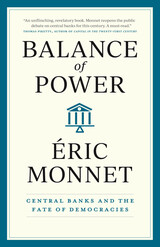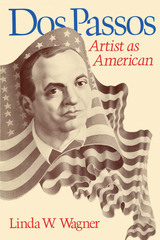
In most of his half century of writing, John Dos Passos consistently tried to capture and define the American character. The complete range of his work builds to Dos Passos' concept of "contemporary chronicle," his own name for his fiction. In this first study of all Dos Passos' writing, Linda W. Wagner examines his fiction, poetry, drama, travel essays, and history—a body of work that evokes a vivid image of America meant to be neither judgmental nor moralistic.
From Manhattan Transfer to U. S. A. to District of Columbia to The Thirteenth Chronicle and Mid-century, Wagner illuminates Dos Passos' work with fresh readings and new interpretations. She makes extensive use of unpublished manuscript material so that this is a casebook of Dos Passos' interest in craft and method as well as a thematic study. In addition, this volume chronicles the years during which Dos Passos wrote—the immediate post-World War I period through the twenties and thirties and well into the fifties. This is an important book both in literary criticism and in American social history.


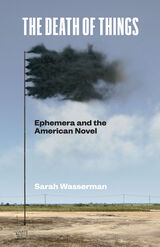
A comprehensive study of ephemera in twentieth-century literature—and its relevance to the twenty-first century
“Nothing ever really disappears from the internet” has become a common warning of the digital age. But the twentieth century was filled with ephemera—items that were designed to disappear forever—and these objects played crucial roles in some of that century’s greatest works of literature. In The Death of Things, author Sarah Wasserman delivers the first comprehensive study addressing the role ephemera played in twentieth-century fiction and its relevance to contemporary digital culture.
Representing the experience of perpetual change and loss, ephemera was central to great works by major novelists like Don DeLillo, Ralph Ellison, and Marilynne Robinson. Following the lives and deaths of objects, Wasserman imagines new uses of urban space, new forms of visibility for marginalized groups, and new conceptions of the marginal itself. She also inquires into present-day conundrums: our fascination with the durable, our concerns with the digital, and our curiosity about what new fictional narratives have to say about deletion and preservation.
The Death of Things offers readers fascinating, original angles on how objects shape our world. Creating an alternate literary history of the twentieth century, Wasserman delivers an insightful and idiosyncratic journey through objects that were once vital but are now forgotten.

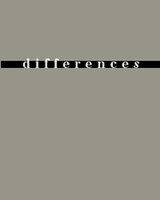
In bringing together major feminist critics whose work has been touched by the writings of Derrida, this issue both pays tribute to and reflects upon Derrida’s ideas. Among the essayists included, Jane Gallop considers Derrida’s writings on Levinas; Judith Butler reads Derrida’s final interview in Le Monde in 2004; Elizabeth Grosz signals Derrida as a rare philosopher for whom sexual difference was crucial; Gayatri Chakravorty Spivak explores the figure of the mother’s child in Derrida, focusing on the critique of reproductive heteronormativity and the question of agency in feminism; and Joan Wallach Scott argues for the importance of critique in the academy. The issue also includes an edited transcription of a vibrant discussion between feminist theorists and Derrida called “Women in the Beehive: A Seminar with Jacques Derrida,” which took place at Brown University’s Pembroke Center for Teaching and Research on Women in 1984.
Contributors. Fran Bartkowski, Anne-Emmanuelle Berger, Susan Bernstein, Judith Butler, Pheng Cheah, Drucilla Cornell, Jane Gallop, Elizabeth Grosz, Peggy Kamuf, Christie McDonald, Joan Wallach Scott, Gayatri Chakravorty Spivak

Most readers of Louis Althusser first enter his work through his writings on ideology. In an important new essay Étienne Balibar, friend and colleague of Althusser, offers an original reading of Althusser’s idea of ideology, drawing on both recently published posthumous writing and Althusser's work on the Piccolo Teatro di Milano. Balibar’s essay uncovers the intricate workings of interpellation through Althusser’s essays on the theater. If debates on dialectical materialism belong to a distant history, Balibar suggests, the question of ideology remains crucial for thinking the present.
The issue includes commentaries on Balibar’s essay from five influential scholars who engage critically with Althusser’s philosophy: Judith Butler, Banu Bargu, Adi Ophir, Warren Montag, and Bruce Robbins. This issue reanimates Althusser’s concept of ideology as an analytic tool for contemporary cultural and political critique.

In Dispositional Properties, David Weissman attacks a problem central to the philosophy of mind and, by implication, to the theory of being: Are there potentialities, capabilities, which dispose the mind to think in one way rather than another?
The volume is arranged in the form of four arguments that converge upon a single point. First, there is an intricate discussion of the shortcomings of Hume's account of mind as ideas and impressions. Next comes a brief treatment of the arguments of some of Weissman's contemporaries, including Carnap and Braithwaite. Third, Weissman discusses Wittgenstein's theories of learning and knowledge. Finally, there is a full discussion of Aristotle and his doctrine of potentialities.
The question this book ultimately raises is how to steer between a doctrine of mind as no more than a series of acts, on the one hand, and a doctrine of mind as a kind of unitary object, on the other. The solution is to show first of all that there must be a potentiality in the universe, and then to show clearly and in detail that the mind is shot through with that potentiality.
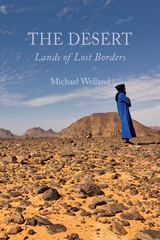
Covering an immense geographical range, Michael Welland wanders from the Sahara to the Atacama, depicting the often bizarre adaptations of plants and animals to these hostile environments. He also looks at these seemingly infertile landscapes in the context of their place in history—as the birthplaces not only of critical evolutionary adaptations, civilizations, and social progress, but also of ideologies. Telling the stories of the diverse peoples who call the desert home, he describes how people have survived there, their contributions to agricultural development, and their emphasis on water and its scarcity. He also delves into the allure of deserts and how they have been used in literature and film and their influence on fashion, art, and architecture. As Welland reveals, deserts may be difficult to define, but they play an active role in the evolution of our global climate and society at large, and their future is of the utmost importance. Entertaining, informative, and surprising, The Desert is an intriguing new look at these seemingly harsh and inhospitable landscapes.
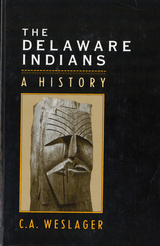
In the seventeenth century white explorers and settlers encountered a tribe of Indians calling themselves Lenni Lenape along the Delaware River and its tributaries in New Jersey, Delaware, eastern Pennsylvania, and southeastern New York. Today communities of their descendants, known as Delawares, are found in Oklahoma, Kansas, Wisconsin, and Ontario, and individuals of Delaware ancestry are mingled with the white populations in many other states. The Delaware Indians is the first comprehensive account of what happened to the main body of the Delaware Nation over the past three centuries.
C. A. Weslager puts into perspective the important events in United States history in which the Delawares participated and he adds new information about the Delawares. He bridges the gap between history and ethnology by analyzing the reasons why the Delawares were repeatedly victimized by the white man.


Directors and Designers explores the practice of scenography—the creation of perspective in the design and painting of stage scenery—and offers new insight into the working relationships of the people responsible for these theatrical transformations. With contributions from leading practitioners and theorists, editor Christine White describes the way in which the roles of director and designer have developed over time. Featuring chapters on theater and site-specific performance, theatrical communication and aesthetics, and the cognitive reception of design by the audience, this volume provides a valuable resource on current approaches to scenography for professionals and students.

The chapters, all of which are new to this edition, focus on key features of the political systems that have emerged following the transition to postcommunist rule and the enlargement of the European Union through 2006. Full attention is given to the pattern of events in individual nations, but the main emphasis is on the framework of politics across the region—constitutions, leadership, parliaments, parties, and electoral systems—and the process of politics, as it is revealed in political participation, civil society, economic change, and the quality of democratic government within and beyond the region.
Clearly written and well supported with references and suggestions for further reading, Developments in Central and East European Politics 4 is the ideal guide to the process of change in a group of states that were formerly modeled on the Soviet Union but are now a distinctive and varied presence within a continent that has been redefining its boundaries, its values, its economic systems, and its international allegiances.
Contributors. Judy Batt, Dirk Berg-Schlosser, Sarah Birch, Heather Grabbe, Tim Haughton, Krzysztof Jasiewicz, Petr Kopecký, Paul G. Lewis, Frances Millard, Cas Mudde, D. Mario Nuti, Mark Pittaway, Ray Taras, Stephen White, Andrew Wilson, Kataryna Wolczuk

The chapters, all of which are new to this edition, focus on key features of the political systems that have emerged following the transition to postcommunist rule and the enlargement of the European Union through 2006. Full attention is given to the pattern of events in individual nations, but the main emphasis is on the framework of politics across the region—constitutions, leadership, parliaments, parties, and electoral systems—and the process of politics, as it is revealed in political participation, civil society, economic change, and the quality of democratic government within and beyond the region.
Clearly written and well supported with references and suggestions for further reading, Developments in Central and East European Politics 4 is the ideal guide to the process of change in a group of states that were formerly modeled on the Soviet Union but are now a distinctive and varied presence within a continent that has been redefining its boundaries, its values, its economic systems, and its international allegiances.
Contributors. Judy Batt, Dirk Berg-Schlosser, Sarah Birch, Heather Grabbe, Tim Haughton, Krzysztof Jasiewicz, Petr Kopecký, Paul G. Lewis, Frances Millard, Cas Mudde, D. Mario Nuti, Mark Pittaway, Ray Taras, Stephen White, Andrew Wilson, Kataryna Wolczuk

Contributors. Alfred B. Evans, Zvi Gitelman, Gordon Hahn, Margot Light, Michael McFaul, Sarah Oates, Thomas F. Remington, Peter Rutland, Richard Sakwa, Robert Sharlet, Darrell Slider, Judy Twigg, Stephen White, John P. Willerton

Contributors. Alfred B. Evans, Zvi Gitelman, Gordon Hahn, Margot Light, Michael McFaul, Sarah Oates, Thomas F. Remington, Peter Rutland, Richard Sakwa, Robert Sharlet, Darrell Slider, Judy Twigg, Stephen White, John P. Willerton
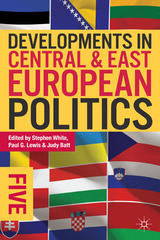
Central and East Europe is a large, extremely diverse region, encompassing full-fledged EU members—the Czech Republic, Hungary, Poland, Estonia, Latvia, Lithuania, Slovenia, and Slovakia, followed later by Bulgaria and Romania—as well as nations of the Western Balkans that are progressing at various speeds along the EU path—Croatia, about to join; Macedonia, Montenegro and Serbia, with EU candidate status; and Albania, Bosnia and Herzegovina, and Kosovo, struggling to keep up. The region also includes the East European states of Ukraine, Belarus, and Moldova. In this collection, leading authorities examine how these heterogeneous nations have fared since the collapse of communism. The contributors look at executive leadership, elections and voter behavior, parliamentary systems, political parties, citizen engagement in civil society, the effects of neoliberalism, and the quality of life in postcommunist democracies. Most of the essays are new to this edition; the rest have been thoroughly updated.
Contributors. Judy Batt, Sarah Birch, Nathaniel Copsey, Terry Cox, Rick Fawn, Tim Haughton, Krzysztof Jasiewicz, Paul G. Lewis, Frances Millard, David M. Olson, Mitchell A. Orenstein, Andrew Roberts, Ray Taras, Stephen White, Andrew Wilson
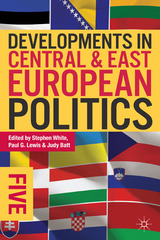
Central and East Europe is a large, extremely diverse region, encompassing full-fledged EU members—the Czech Republic, Hungary, Poland, Estonia, Latvia, Lithuania, Slovenia, and Slovakia, followed later by Bulgaria and Romania—as well as nations of the Western Balkans that are progressing at various speeds along the EU path—Croatia, about to join; Macedonia, Montenegro and Serbia, with EU candidate status; and Albania, Bosnia and Herzegovina, and Kosovo, struggling to keep up. The region also includes the East European states of Ukraine, Belarus, and Moldova. In this collection, leading authorities examine how these heterogeneous nations have fared since the collapse of communism. The contributors look at executive leadership, elections and voter behavior, parliamentary systems, political parties, citizen engagement in civil society, the effects of neoliberalism, and the quality of life in postcommunist democracies. Most of the essays are new to this edition; the rest have been thoroughly updated.
Contributors. Judy Batt, Sarah Birch, Nathaniel Copsey, Terry Cox, Rick Fawn, Tim Haughton, Krzysztof Jasiewicz, Paul G. Lewis, Frances Millard, David M. Olson, Mitchell A. Orenstein, Andrew Roberts, Ray Taras, Stephen White, Andrew Wilson

Contributors. Alfred B. Evans, Henry E. Hale, P. Hanson, Margot Light, N. Manning, J. Mathers, Michael McFaul, Sarah Oates, Thomas F. Remington, C. Ross, Richard Sakwa, Darrell Slider, G. Smith, Stephen White, John P. Willerton
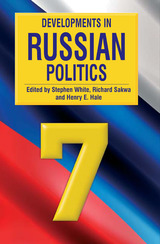
Contributors. Alfred B. Evans, Henry E. Hale, P. Hanson, Margot Light, N. Manning, J. Mathers, Michael McFaul, Sarah Oates, Thomas F. Remington, C. Ross, Richard Sakwa, Darrell Slider, G. Smith, Stephen White, John P. Willerton
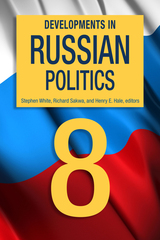
Contributors. Vladimir Gel'man, Henry E. Hale, Philip Hanson, Kathryn Hendley, Margot Light, Jennifer Mathers, Ian McAllister, Sarah Oates, Thomas F. Remington, Graeme Robertson, Richard Sakwa, Darrell Slider, Svetlana Stephenson, Stephen White, John P. Willerton

On January 3, 1911, police discovered Latvian revolutionaries on the lam in London’s East End. A six-hour gunfight ensued until fire consumed the building where the radicals had taken refuge. When a not-yet-prime-minister Winston Churchill arrived at the scene, he ordered officials to let the fire run its course. At least two people burned to death in the blaze, but the Latvian ringleader, Peter the Painter, remained at large. Known as the Siege of Sidney Street, the event was a nationwide sensation and ignited fierce debates about immigration, extremism, and law enforcement. This book unravels the full story of the siege, the Latvian expatriates, and London’s vibrant anarchist movement in the early twentieth century.


Design for Society is not an anti-design book; rather, it is an anti-consumerist-design book, in that it reveals what most people would agree are the socially and ecologically unsound values and unsatisfactory implications on which the system of consumerist design is constructed. In so doing, it prepares the ground for a more responsible and just type of design.


Published annually, the journal Dumbarton Oaks Papers was founded in 1941 for the publication of articles relating to Byzantine civilization.
In this issue: Margaret Mullet, “Ruth Juliana Macrides: 1949–2019”; Sihong Lin, “Justin under Justinian: The Rise of Emperor Justin II Revisited”; David Gyllenhaal, “Byzantine Melitene and the Social Milieu of the Syriac Renaissance”; Pavel Murdzhev, “The Introduction of the Moldboard Plow to Byzantine Thrace in the Eleventh Century”; Annemarie Weyl Carr, “The Lady and the Juggler: Mary East and West”; Robert S. Nelson, “A Miniature Mosaic Icon of St. Demetrios in Byzantium and the Renaissance”; Esra Akin-Kivanç, “In the Mirror of the Other: Imprints of Muslim–Christian Encounters in the Late Antique and Early Medieval Mediterranean”; Anna Chrysostomides, “John of Damascus’s Theology of Icons in the Context of Eighth-Century Palestinian Iconoclasm”; Max Ritter, “The Byzantine Afterlife of Procopius’s Buildings”; Jonathan L. Zecher, “Myths of Aerial Tollhouses and Their Tradition from George the Monk to the Life of Basil the Younger”; Nektarios Zarras, “Illness and Healing: Τhe Ministry Cycle in the Chora Monastery and the Literary Oeuvre of Theodore Metochites”; and Aleksandr Andreev, “The Order of the Hours in the Yaroslavl Horologion.”

Published annually, the journal Dumbarton Oaks Papers was founded in 1941 for the publication of articles relating to Byzantine civilization.
In this issue: John S. Langdon and Stephen W. Reinert, “Speros Vryonis Jr.: 1928–2019”; Abraham Terian, “Monastic Turmoil in Sixth-Century Jerusalem and the South Caucasus: The Letter of Patriarch John IV to Catholicos Abas of the Caucasian Albanians”; Coleman Connelly, “Continued Celebration of the Kalends of January in the Medieval Islamic East”; Victoria Gerhold, “The Legend of Euphratas: Some Notes on Its Origins, Development, and Significance”; Christos Simelidis, “Two Lives of the Virgin: John Geometres, Euthymios the Athonite, and Maximos the Confessor”; Georgios Makris, “Living in Turbulent Times: Monasteries, Settlements, and Laypeople in Late Byzantine Southwest Thrace”; Philipp Niewöhner, “The Significance of the Cross before, during, and after Iconoclasm: Early Christian Aniconism in Constantinople and Asia Minor”; Stefania Gerevini, “Art as Politics in the Baptistery and Chapel of Sant’Isidoro at San Marco, Venice”; Laura Pfuntner, “Between Science and Superstition: Photius, Diodorus Siculus, and ‘Hermaphrodites’”; Baukje van den Berg, “John Tzetzes as Didactic Poet and Learned Grammarian”; Matthew Kinloch, “In the Name of the Father, the Husband, or Some Other Man: The Subordination of Female Characters in Byzantine Historiography”; Levente László, “Rhetorius, Zeno’s Astrologer, and a Sixth-Century Astrological Compendium”; and Stig Simeon R. Frøyshov, “The Early History of the Hagiopolitan Daily Office in Constantinople: New Perspectives on the Formative Period of the Byzantine Rite.”
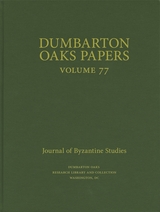

Drawing on previously overlooked diaries, letters, and contemporary newspaper accounts, military historian Flint Whitlock brings the Civil War in the West to life. Distant Bugles, Distant Drums details the battles of 1,000 Coloradans against 3,000 Confederate soldiers in New Mexico and offers vivid portraits of the leaders and soldiers involved - men whose strengths and flaws would shape the fate of the nation.
On their way to Colorado in search of gold and silver for the Confederacy's dwindling coffers, Texan Confederates won a series of engagements along the Rio Grande. Hastily assembled troops that had marched to meet them from Colorado finally turned them back in an epic conflict at Gloriéta Pass.
Miners, farmers, and peacetime officers turned themselves overnight into soldiers to keep the Confederacy from capturing the West's mines, shaping the outcome of the Civil War. Distant Bugles, Distant Drums tells their story. Southwest Book Award Winner from the Border Regional Library Association
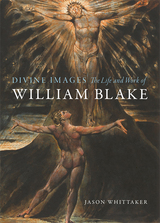


In the seventeenth century most English households had gardens. These gardens were not merely ornamental; even the most elaborate and fashionable gardens had areas set aside for growing herbs, fruit, vegetables, and flowers for domestic use. Meanwhile, more modest households considered a functional garden to be a vital tool for the survival of the house and family. The seventeenth century was also a period of exciting introductions of plants from overseas, which could be used in all manner of recipes.
Using manuscript household manuals, recipe books, and printed herbals, The Domestic Herbal takes the reader on a tour of the productive garden and of the various parts of the house—kitchens and service rooms, living rooms and bedrooms—to show how these plants were used for cooking and brewing, medicines and cosmetics, in the making and care of clothes, and to keep rooms fresh, fragrant, and decorated. Recipes used by seventeenth-century households for preparations such as flower syrups, snail water, and wormwood ale are also included. A brief herbal gives descriptions of plants both familiar and less known to today’s readers, including the herbs used for common tasks like dyeing and brewing, and those that held a particular cultural importance in the seventeenth century. Featuring exquisite colored illustrations from John Gerard’s herbal book of 1597 as well as prints, archival material, and manuscripts, this book provides an intriguing and original focus on the domestic history of Stuart England.


Known to history as “Dunmore’s War,” the 1774 campaign against a Shawnee-led Indian confederacy in the Ohio Country marked the final time an American colonial militia took to the field in His Majesty’s service and under royal command. Led by John Murray, the fourth Earl of Dunmore and royal governor of Virginia, a force of colonials including George Rogers Clark, Daniel Morgan, Michael Cresap, Adam Stephen, and Andrew Lewis successfully enforced the western border established by treaties in parts of present-day West Virginia and Kentucky. The campaign is often neglected in histories, despite its major influence on the conduct of the Revolutionary War that followed. In Dunmore’s War: The Last Conflict of America’s Colonial Era, award-winning historian Glenn F. Williams describes the course and importance of this campaign. Supported by extensive primary source research, the author corrects much of the folklore concerning the war and frontier fighting in general, demonstrating that the Americans did not adopt Indian tactics for wilderness fighting as is often supposed, but rather used British methods developed for fighting irregulars in the woods of Europe, while incorporating certain techniques learned from the Indians and experience gained from earlier colonial wars.
As an immediate result of Dunmore’s War, the frontier remained quiet for two years, giving the colonies the critical time to debate and declare independence before Britain convinced its Indian allies to resume attacks on American settlements. Ironically, at the same time Virginia militiamen were fighting under command of a king’s officer, the colony was becoming one of the leaders in the move toward American independence. Although he was hailed as a hero at the end of the war, Lord Dunmore’s attempt to maintain royal authority put him in direct opposition to many of the subordinates who followed him on the frontier, and in 1776 he was driven from Virginia and returned to England.

Published in 2002, Deforesting the Earth was a landmark study of the history and geography of deforestation. Now available as an abridgment, this edition retains the breadth of the original while rendering its arguments accessible to a general readership.
Deforestation—the thinning, changing, and wholesale clearing of forests for fuel, shelter, and agriculture—is among the most important ways humans have transformed the environment. Surveying ten thousand years to trace human-induced deforestation’s effect on economies, societies, and landscapes around the world, Deforesting the Earth is the preeminent history of this process and its consequences.
Beginning with the return of the forests after the ice age to Europe, North America, and the tropics, Michael Williams traces the impact of human-set fires for gathering and hunting, land clearing for agriculture, and other activities from the Paleolithic age through the classical world and the medieval period. He then focuses on forest clearing both within Europe and by European imperialists and industrialists abroad, from the 1500s to the early 1900s, in such places as the New World, India, and Latin America, and considers indigenous clearing in India, China, and Japan. Finally, he covers the current alarming escalation of deforestation, with our ever-increasing human population placing a potentially unsupportable burden on the world’s forests.

Presenting a rich mosaic of embodied contemporary narratives in spirituality and movement studies, this book explicitly studies the relationship between spirituality and the field of Somatic Movement Dance Education. It is the first scholarly text to focus on contemporary spirituality within the domain of dance and somatic movement studies.
Dance, Somatics and Spiritualities brings together prominent authors and practitioners in order to elucidate how a wide range of sacred narratives/spiritualities are informing pedagogy, educational and therapeutic practice. As well as providing new insights and promoting creative/artistic awareness, this seminal text de-mystifies the spiritual/sacred and brings clarity and academic visibility to this largely uncharted and often misrepresented subject.

In France, Wilsford shows, the state is strong in the health policy domain, while organized medicine is weak and divided. Consequently, physicians exercise little influence over health care policymaking. By contrast, in the United States the state is weak, the employers and insurers who pay for health care are fragmented, and organized medicine is strong and well financed. As a result, medical professionals are able to exert a greater influence on policymaking, thus making cost control more difficult.
Wilsford extends his comparison to health care systems in the United Kingdom, West Germany, Italy, Canada, and Japan. Whether the private or public sector finances health care, he discovers, there is now an important trend in all of the advanced industrial countries toward controlling escalating costs by curbing both the medical profession’s clinical autonomy and physicians’ incomes.



This book is about crossing into a new version of your own story—after a marriage ends, the parents die, the children are grown, or the faith is discarded—and finding a place to stand, a new way to take up space in the world. Uniting past and present, these poems create multifaceted portraits, particularly of relationships between mothers and daughters. Wilson’s poems sift through memory, dreams, art, imagination, nature, and close observation, turning each discovery over in order to see it fully. Beneath the fine-grained imagery of these lyric excavations are the sometimes opposing but fundamental desires to be whole and to be seen, which often means looking within as well as turning toward the world outside. The speaker is listening always for the dream women who call, for whatever may beckon from the present and future, preparing her in some way for a life that’s truly hers.

Pierrot, Little Bo Peep, cowboy: these characters and many more form part of this colorful story of dressing up, from the accession of Queen Victoria to the coronation of Queen Elizabeth II. During this time, fancy dress became a regular part of people’s social lives, and the craze for it spread across Britain and the Empire, reaching every level of society. Spectacular and witty costumes appeared at suburban street carnivals, victory celebrations, fire festivals, missionary bazaars, and the extravagant balls of the wealthy. From the Victorian middle classes performing “living statues” to squads of Shetland men donning traditional fancy dress and setting fire to a Viking ship at the annual Up Helly Aa celebration, this lavishly illustrated book provides a unique view into the quirky, wonderful world of fancy dress.
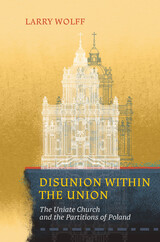
Between 1772 and 1795, Russia, Prussia, and Austria concluded agreements to annex and eradicate the Commonwealth of Poland-Lithuania. With the partitioning of Poland, the dioceses of the Uniate Church (later known as the Greek Catholic Church) were fractured by the borders of three regional hegemons.
Larry Wolff's deeply engaging account of these events delves into the politics of the Episcopal elite, the Vatican, and the three rulers behind the partitions: Catherine II of Russia, Frederick II of Prussia, and Joseph II of Austria. Wolff uses correspondence with bishops in the Uniate Church and ministerial communiqués to reveal the nature of state policy as it unfolded.
Disunion within the Union adopts methodologies from the history of popular culture pioneered by Natalie Zemon Davis (The Return of Martin Guerre) and Carlo Ginzburg (The Cheese and the Worms) to explore religious experience on a popular level, especially questions of confessional identity and practices of piety. This detailed study of the responses of common Uniate parishioners, as well as of their bishops and hierarchs, to the pressure of the partitions paints a vivid portrait of conflict, accommodation, and survival in a church subject to the grand designs of the late eighteenth century’s premier absolutist powers.

Finding the talented, encouraging their advancement, making known their potentialities"--to these aims many of the twentieth century's most distinguished psychologists have turned their attention. In this book, Terman, Paterson, Burt, Strong, Guilford, Wolfie, Stalnaker, MacKinnon, Ghiselli, Mackworth, and Vernon, each with his own particular emphasis, discuss these issues as lecturers in a series set up by their colleague, Walter Van Dyke Bingham. In sum, they present a cross section of psychological thought at mid-century, each man writing about the set of problems on which his interest has centered.
Assuming that the concept of intelligence is essential to the study of talent, they give their attention to other variables--health, physical energy and work habits, maturation, education, parental advantage, and the like. Terman, for example, discusses the personality traits that make for success, while Strong describes his and others' efforts to measure vocational interests. Burt looks at the inheritance of emotional and temperamental qualities that affect the way one works and the amount one achieves. MacKinnon, Chiselli, and Mackworth concentrate on important kinds of ability that are not well measured by any of the available tests of "intelligence."
Today, these pioneering scholars stand high on the list of those who have advanced the discovery and development of talent. Many of these articles are already classics, and their publication in one volume will provide a ready reference and an important impetus to further work in their area of interest. These eleven lectures, provided for by the late Walter Van Dyke Bingham and presented at a different university each year, were delivered between 1956 and 1965.

The scientific study of forgiveness is a new approach to an age-old problem. For thousands of years, people have practiced forgiveness within religious systems. Now, the field of scholarly research of forgiveness reveals the beneficial aspects of the process.
p>Contributors include Elliot Dorff and Martin Marty discussing religious interpretations, followed by social implications explained by Kenneth Pargament and Mark Rye. Roy Baumeister, Julie Exline, and Kristin Sommer present the victim's point of view. Other contributors focusing on the forgiveness research are: Everett Worthington, Robert Enright, Catherine Coyle, Carl Thoresen, Frederic Luskin, and Alex Harris. An annotated bibliography by Michael McCullough, Julie Exline, and Roy Baumeister, covers the empirical literature on the subject. Lewis Smedes concludes with the four steps necessary for forgiveness: moving from estrangement to forgiveness to reconciliation to hope.
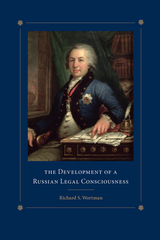

In response to a scarcity of writings on the intersections between dance and Christianity, Dancing to Transform examines the religious lives of American Christians who, despite the historically tenuous place of dance within Christianity, are also professional dancers.
Through a multi-site study of four professional dance companies, Wright conducted participant-observations and ethnographic interviews with artistic directors, choreographers, and company members who self-identify as Christian. She then analyzed choreography from each company to determine how concert dance becomes religious and what effects danced religious practices have for these participants. Her research reveals that the participants turn what they perceive as secular professional dance into different kinds of religious practices in order to actualize individual and communal religious identities—they dance to transform.

Officially founded in 1978, the Beijing Dance School was the first professional dance school established after the creation of the People’s Republic of China. In the years since, the Beijing Dance Academy has become the only institution of higher learning for professional dance education in the country, as well as the largest prestigious dance school in the world. It is a full-time institution of higher learning with commitments to developing excellent professional dancers, choreographers, and dance researchers. Dance Studies in China is a collection of articles selected from issues of the Journal of Beijing Dance Academy, the only academic journal of dance studies in China. The collection also includes an interview with Shen Wei, the Chinese American choreographer, painter, and director living in New York.
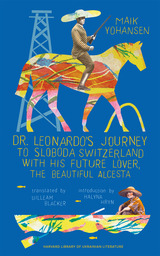
Italian doctor Leonardo Pazzi and Alcesta, his “future lover,” travel through the picturesque, hilly region of Sloboda, near Kharkiv in northeast Ukraine. They experience a series of encounters with local Ukrainians and nature, disappearances, and transformations filled with paradoxes. The characters are bright, marionette-like caricatures whom the author constructs and moves ostentatiously in full view of the reader, revealing his artistic devices with a sense of absurd, mischievous humor.
A novel of exuberance and whim that deconstructs the very principles of writing and estranges everyday phenomena, Dr. Leonardo’s Journey marks the highpoint of Ukrainian modernism right before it was violently cut down by Stalin’s repressions. The novel shifts away from character or plot as such and instead celebrates the places and spaces in which these things come into being, and the sheer joy of movement and experience. In this sense, Maik Yohansen’s heroes echo Mykola Hohol, whose tour through Russia’s vast spaces in Nikolai Gogol’s Dead Souls is an obvious reference point, and Laurence Sterne, whose irreverent narrative style and textual games Yohansen emulates. Presented here in a contemporary, deft English translation, the novel is a must read for everyone interested in discovering the rich heritage of Ukrainian modernism.
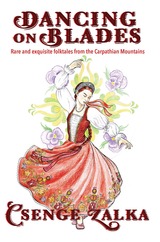
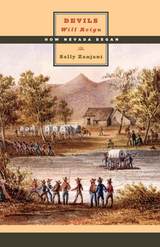


At a time when Western nations are being urged to confront their colonial past, this book examines a major archive, revealing the scale of the Spanish colonial enterprise in South and Central America.
Established in 1785, the Archivo General de Indias in Seville holds roughly three hundred years of Spanish colonial history in the Americas. It houses 8,000 charts and around ninety million documents—among them Christopher Columbus’s logbook and the famous Treaty of Tordesillas which, mediated by the Pope and signed in 1494, entitled the Spanish and Portuguese kings to divide the world between them. With this treaty as a starting point, the historian Martin Zimmermann journeys into the age of discovery and recounts stories of dangerous passages, encounters with the unknown, colonial brutality, and the power of cartographers, illustrating the insatiable lust of colonialists to conquer, exploit, and own the world. Ursula Schulz-Dornburg’s photographs show the archive before its redevelopment in 2002, offering a unique view into one of Europe’s most significant archives.

With contributors from a wide range of disciplines, including philosophy, media and film studies, art history, literature, and sociology, the book considers a wide variety of cultural manifestations of social perception. In the process, it offers a reevaluation of he concept of humanism, addressing key criticisms of by Foucault, Butler, and others.

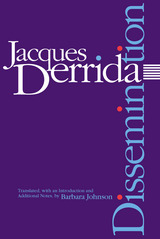

Decolonizing German and European History at the Museum examines efforts by European museums to investigate colonialism as part of an unprocessed past, confront its presence, and urge repair. A flurry of exhibitions and the overhaul of numerous large museums in the last decade signal that an emergent colonial memory culture is now reaching broader publics. Exhibitions pose the question of what Europeans owe to those they colonized.
Decolonizing German and European History at the Museum shows how museums can help visitors mourn historic violence and identify the contemporary agents, beneficiaries, victims, survivors, and resisters of colonial presence. At the same time, the book treats the museum as part of the racialized power relations that activists, academics, and artists have long protested against. This book asks whether museums have made the dream of activists, academics, and artists to build equitable futures more acceptable and more durable—or whether in packaging that dream for general audiences they curtail it. Confronting colonial violence, this book argues, pushes Europeans to face the histories of racism and urges them to envision antiracism at the global scale.

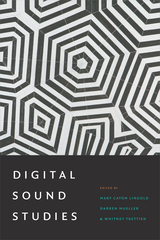
Contributors. Myron M. Beasley, Regina N. Bradley, Steph Ceraso, Tanya Clement, Rebecca Dowd Geoffroy-Schwinden, W. F. Umi Hsu, Michael J. Kramer, Mary Caton Lingold, Darren Mueller, Richard Cullen Rath, Liana M. Silva, Jonathan Sterne, Jennifer Stoever, Jonathan W. Stone, Joanna Swafford, Aaron Trammell, Whitney Trettien
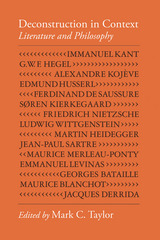
"This invaluable philosophical sampler brings together many of the threads out of which deconstruction is woven. taylor's anthology does not make deconstruction easy; much more usefully, it provides a meticulous guide to the sources – and significance – of the difficulties. – Barbara E. Johnson
"The book will be of great value as a set of readings with authoritative explanation for all those interested in the current relations of literature and philosophy. It is the best book of its kind I know. – J. Hillis Miller, Yale University

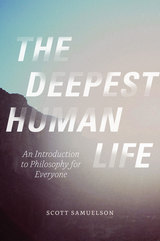
Sometimes it seems like you need a PhD just to open a book of philosophy. We leave philosophical matters to the philosophers in the same way that we leave science to scientists. Scott Samuelson thinks this is tragic, for our lives as well as for philosophy. In The Deepest Human Life he takes philosophy back from the specialists and restores it to its proper place at the center of our humanity, rediscovering it as our most profound effort toward understanding, as a way of life that anyone can live. Exploring the works of some of history’s most important thinkers in the context of the everyday struggles of his students, he guides us through the most vexing quandaries of our existence—and shows just how enriching the examined life can be.
Samuelson begins at the beginning: with Socrates, working his most famous assertion—that wisdom is knowing that one knows nothing—into a method, a way of approaching our greatest mysteries. From there he springboards into a rich history of philosophy and the ways its journey is encoded in our own quests for meaning. He ruminates on Epicurus against the sonic backdrop of crickets and restaurant goers in Iowa City. He follows the Stoics into the cell where James Stockdale spent seven years as a prisoner of war. He spins with al-Ghazali first in doubt, then in the ecstasy of the divine. And he gets the philosophy education of his life when one of his students, who authorized a risky surgery for her son that inadvertently led to his death, asks with tears in her eyes if Kant was right, if it really is the motive that matters and not the consequences. Through heartbreaking stories, humanizing biographies, accessible theory, and evocative interludes like “On Wine and Bicycles” or “On Zombies and Superheroes ,” he invests philosophy with the personal and vice versa. The result is a book that is at once a primer and a reassurance—that the most important questions endure, coming to life in each of us.
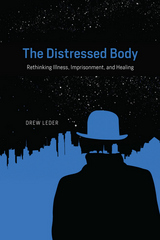
Leder draws on literary examples, clinical and philosophical sources, his medical training, and his own struggle with chronic pain. He levies a challenge to the capitalist and Cartesian models that rule modern medicine. Similarly, he looks at the root paradigms of our penitentiary and factory farm systems and the way these produce distressed bodies, asking how such institutions can be reformed. Writing with coauthors ranging from a prominent cardiologist to long-term inmates, he explores alternative environments that can better humanize—even spiritualize—the way we treat one another, offering a very different vision of medical, criminal justice, and food systems. Ultimately Leder proposes not just new answers to important bioethical questions but new ways of questioning accepted concepts and practices.
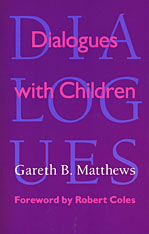
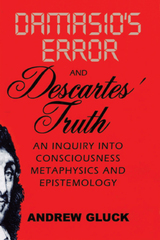

The importance of the rich corpus of “Masters Literature” that developed in early China since the fifth century BCE has long been recognized. But just what are these texts? Scholars have often approached them as philosophy, but these writings have also been studied as literature, history, and anthropological, religious, and paleographic records. How should we translate these texts for our times?
This book explores these questions through close readings of seven examples of Masters Literature and asks what proponents of a “Chinese philosophy” gained by creating a Chinese equivalent of philosophy and what we might gain by approaching these texts through other disciplines, questions, and concerns. What happens when we remove the accrued disciplinary and conceptual baggage from the Masters Texts? What neglected problems, concepts, and strategies come to light? And can those concepts and strategies help us see the history of philosophy in a different light and engender new approaches to philosophical and intellectual inquiry? By historicizing the notion of Chinese philosophy, we can, the author contends, answer not only the question of whether there is a Chinese philosophy but also the more interesting question of the future of philosophical thought around the world.
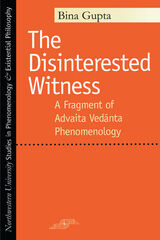

How does one die by philosophy? In Diogenes Laertius, philosophers jump into volcanoes, bury themselves in dung, get eaten by dogs, hang themselves, drown, and vanish into thin air -- sometimes all in a single lifetime. But what happens when we look beyond the fantastic and absurd to examine the particular ways that the philosophers' lives and deaths are recounted?
Ava Chitwood's reexamination of Diogenes Laertius's philosophical biographies opens a new window on the intellectual culture and context in which the work of philosophers like Empedocles, Heraclitus, and Democritus was read, received, and transmitted. Chitwood's analysis also suggests a methodology for understanding the interplay between biography and philosophy and for evaluating biographical sources.
While Chitwood's approach combines the disciplines of classical philology and philosophy, Death by Philosophy is not intended solely for the specialist. This investigation offers the modern reader a fascinating, fresh, and entertaining view of the ancient literary and philosophical world.
Ava Chitwood is Assistant Professor of Classics, at the University of South Florida.

There were heroic lives and deaths before and after, but none quite like Socrates'. He did not die by sword or spear, braving all to defend home and country, but as a condemned criminal, swallowing a painless dose of poison. And yet Socrates' death in 399 BCE has figured large in our world ever since, shaping how we think about heroism and celebrity, religion and family life, state control and individual freedom, the distance of intellectual life from daily activity--many of the key coordinates of Western culture. In this book Emily Wilson analyzes the enormous and enduring power the trial and death of Socrates has exerted over the Western imagination.
Beginning with the accounts of contemporaries like Aristophanes, Xenophon, and, above all, Plato, the book offers a comprehensive look at the death of Socrates as both a historical event and a controversial cultural ideal. Wilson shows how Socrates' death--more than his character, actions, or philosophical beliefs--has played an essential role in his story. She considers literary, philosophical, and artistic works--by Cicero, Erasmus, Milton, Voltaire, Hegel, and Brecht, among others--that used the death of Socrates to discuss power, politics, religion, the life of the mind, and the good life. As highly readable as it is deeply learned, her book combines vivid descriptions, critical insights, and breadth of research to explore how Socrates' death--especially his seeming ability to control it--has mattered so much, for so long, to so many different people.

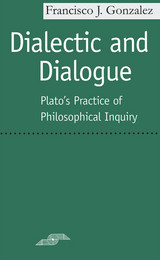
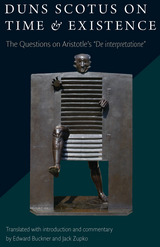
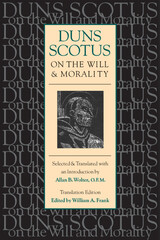
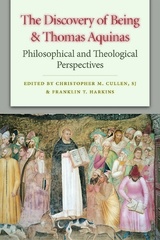
The collection of essays within The Discovery of Being and Thomas Aquinas is divided into three major parts: the first set of essays concerns the foundation of metaphysics within Thomism; the second set exemplifies the use of metaphysics in fundamental philosophical issues within Thomism; and the third set employs metaphysics in central theological issues.
The Discovery of Being and Thomas Aquinas allows major scholars of the different types of Thomism to engage in a full-scale defense of their position, as well as expanding Thomistic metaphysics to the discipline of theology in important ways.
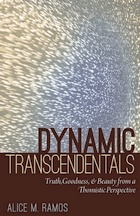
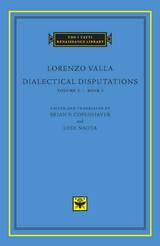
Lorenzo Valla (1407–1457) ranks among the greatest scholars and thinkers of the Renaissance. He secured lasting fame for his brilliant critical skills, most famously in his exposure of the “Donation of Constantine,” the forged document upon which the papacy based claims to political power. Lesser known in the English-speaking world is Valla’s work in the philosophy of language—the basis of his reputation as the greatest philosopher of the humanist movement.
Dialectical Disputations, translated here for the first time into any modern language, is his principal contribution to the philosophy of language and logic. With this savage attack on the scholastic tradition of Aristotelian logic, Valla aimed to supersede it with a new logic based on the actual historical usage of classical Latin and on a commonsense approach to semantics and argument. Valla provides a logic that could be used by lawyers, preachers, statesmen, and others who needed to succeed in public debate—one that was stylistically correct and rhetorically elegant, and thus could dispense with the technical language of the scholastics, a “tribe of Peripatetics, perverters of natural meanings.” Valla’s reformed dialectic became a milestone in the development of humanist logic and contains startling anticipations of modern theories of semantics and language.
Volume 1 contains Book I, in which Valla refutes Aristotle’s logical works on the categories, transcendentals, and predicables, with excursions into natural and moral philosophy and theology.
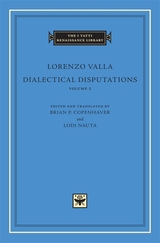
Lorenzo Valla (1407–1457) ranks among the greatest scholars and thinkers of the Renaissance. He secured lasting fame for his brilliant critical skills, most famously in his exposure of the “Donation of Constantine,” the forged document upon which the papacy based claims to political power. Lesser known in the English-speaking world is Valla’s work in the philosophy of language—the basis of his reputation as the greatest philosopher of the humanist movement.
Dialectical Disputations, translated here for the first time into any modern language, is his principal contribution to the philosophy of language and logic. With this savage attack on the scholastic tradition of Aristotelian logic, Valla aimed to supersede it with a new logic based on the actual historical usage of classical Latin and on a commonsense approach to semantics and argument. Valla provides a logic that could be used by lawyers, preachers, statesmen, and others who needed to succeed in public debate—one that was stylistically correct and rhetorically elegant, and thus could dispense with the technical language of the scholastics, a “tribe of Peripatetics, perverters of natural meanings.” Valla’s reformed dialectic became a milestone in the development of humanist logic and contains startling anticipations of modern theories of semantics and language.
Volume 2 contains Books II–III, in which Valla refutes Aristotle’s logical works on propositions, topics, and the syllogistic.
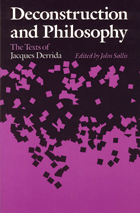
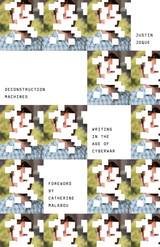
A bold new theory of cyberwar argues that militarized hacking is best understood as a form of deconstruction
From shadowy attempts to steal state secrets to the explosive destruction of Iranian centrifuges, cyberwar has been a vital part of statecraft for nearly thirty years. But although computer-based warfare has been with us for decades, it has changed dramatically since its emergence in the 1990s, and the pace of change is accelerating.
In Deconstruction Machines, Justin Joque inquires into the fundamental nature of cyberwar through a detailed investigation of what happens at the crisis points when cybersecurity systems break down and reveal their internal contradictions. He concludes that cyberwar is best envisioned as a series of networks whose constantly shifting connections shape its very possibilities. He ultimately envisions cyberwar as a form of writing, advancing the innovative thesis that cyber attacks should be seen as a militarized form of deconstruction in which computer programs are systems that operate within the broader world of texts.
Throughout, Joque addresses hot-button subjects such as technological social control and cyber-resistance entities like Anonymous and Wikileaks while also providing a rich, detailed history of cyberwar. Deconstruction Machines provides a necessary new interpretation of deconstruction and timely analysis of media, war, and technology.
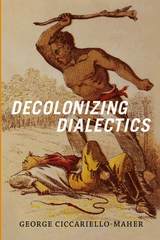

This edition contains a new introduction by Stefan Kipfer, explaining the book’s contemporary ramifications in the ever-expanding reach of the urban in the twentieth-century Western world.
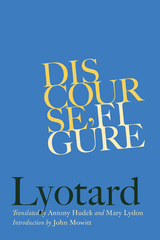
Choice Outstanding Academic Title
Jean-François Lyotard is recognized as one of the most significant French philosophers of the twentieth century. Although nearly all of his major writing has been translated into English, one important work has until now been unavailable. Discourse, Figure is Lyotard’s thesis. Provoked in part by Lacan’s influential seminars in Paris, Discourse, Figure distinguishes between the meaningfulness of linguistic signs and the meaningfulness of plastic arts such as painting and sculpture. Lyotard argues that because rational thought is discursive and works of art are inherently opaque signs, certain aspects of artistic meaning such as symbols and the pictorial richness of painting will always be beyond reason’s grasp.
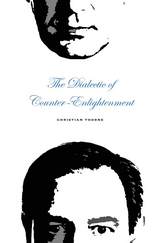
In this wide-ranging, ambitious, and engaging study, Christian Thorne confronts the history and enduring legacy of anti-foundationalist thought.
Anti-foundationalism—the skeptical line of thought that contends our beliefs cannot be authoritatively grounded and that most of what passes for knowledge is a sham—has become one of the dominant positions in contemporary criticism. Thorne argues that despite its ascendance, anti-foundationalism is wrong. In The Dialectic of Counter-Enlightenment, he uses deft readings of a range of texts to offer new perspectives on the ongoing clash between philosophy and comprehensive doubt.
The problem with anti-foundationalism is not, as is often thought, that it radiates uncertainty or will unglue the university, but instead that it is a system of thought—with set habits that generate unearned certainties. The shelves are full of histories of modern philosophy, but the history of the resistance to philosophical thought remains to be told. At its heart, The Dialectic of Counter-Enlightenment is a plea not to take doubt at its word—a plea for the return of a vanished philosophical intelligence and for the retirement of an anti-Enlightenment thinking that commits, over and over again, the very crimes that it lays at Enlightenment’s door.
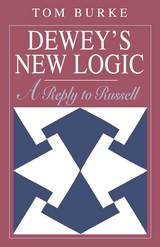
Burke demonstrates that Russell misunderstood crucial aspects of Dewey's theory and contends that logic today has progressed beyond Russell and is approaching Dewey's broader perspective.
"[This] book should be of substantial interest not only to Dewey scholars and other historians of twentieth-century philosophy, but also to devotees of situation theory, formal semantics, philosophy of mind, cognitive science, and Artificial Intelligence."—Georges Dicker, Transactions of the C.S. Peirce Society
"No scholar, thus far, has offered such a sophisticated and detailed version of central themes and contentions in Dewey's Logic. This is a pathbreaking study."—John J. McDermott, editor of The Philosophy of John Dewey
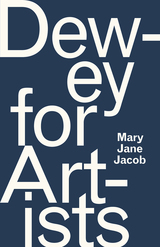
Dewey argued that there is strong social value to be found in art, and it is artists who often most challenge our preconceived notions. Dewey for Artists shows us how Dewey advocated for an “art of democracy.” Identifying the audience as co-creator of a work of art by virtue of their experience, he made space for public participation. Moreover, he believed that societies only become—and remain—truly democratic if its citizens embrace democracy itself as a creative act, and in this he advocated for the social participation of artists.
Throughout the book, Mary Jane Jacob draws on the experiences of contemporary artists who have modeled Dewey’s principles within their practices. We see how their work springs from deeply held values. We see, too, how carefully considered curatorial practice can address the manifold ways in which aesthetic experience happens and, thus, enable viewers to find greater meaning and purpose. And it is this potential of art for self and social realization, Jacob helps us understand, that further ensures Dewey’s legacy—and the culture we live in.

There are, always, more things in heaven and earth than are dreamt of in one’s philosophy—and in these essays Charles Taylor turns to those things not fully imagined or avenues not wholly explored in his epochal A Secular Age. Here Taylor talks in detail about thinkers who are his allies and interlocutors, such as Iris Murdoch, Alasdair MacIntyre, Robert Brandom, and Paul Celan. He offers major contributions to social theory, expanding on the issues of nationalism, democratic exclusionism, religious mobilizations, and modernity. And he delves even more deeply into themes taken up in A Secular Age: the continuity of religion from the past into the future; the nature of the secular; the folly of hoping to live by “reason alone”; and the perils of moralism. He also speculates on how irrationality emerges from the heart of rationality itself, and why violence breaks out again and again.
In A Secular Age, Taylor more evidently foregrounded his Catholic faith, and there are several essays here that further explore that faith. Overall, this is a hopeful book, showing how, while acknowledging the force of religion and the persistence of violence and folly, we nonetheless have the power to move forward once we have given up the brittle pretensions of a narrow rationalism.
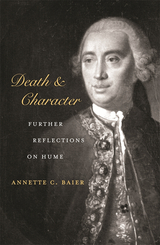
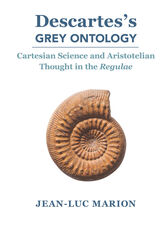

Descartes and his Contemporaries recreates the tumultuous intellectual community of seventeenth-century Europe and provides a detailed, modern analysis of the Meditations in its historical context. The book's chapters examine the arguments and positions of each of the objectors—Hobbes, Gassendi, Arnauld, Morin, Caterus, Bourdin, and others whose views were compiled by Mersenne. They illuminate Descartes' relationships to the scholastics and particularly the Jesuits, to Mersenne's circle with its debates about the natural sciences, to the Epicurean movements of his day, and to the Augustinian tradition. Providing a glimpse of the interactions among leading 17th-century intellectuals as they grappled with major philosophical issues, this book sheds light on how Descartes' thought developed and was articulated in opposition to the ideas of his contemporaries.
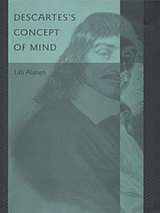
Descartes's concept of the mind, as distinct from the body with which it forms a union, set the agenda for much of Western philosophy's subsequent reflection on human nature and thought. This is the first book to give an analysis of Descartes's pivotal concept that deals with all the functions of the mind, cognitive as well as volitional, theoretical as well as practical and moral. Focusing on Descartes's view of the mind as intimately united to and intermingled with the body, and exploring its implications for his philosophy of mind and moral psychology, Lilli Alanen argues that the epistemological and methodological consequences of this view have been largely misconstrued in the modern debate.
Informed by both the French tradition of Descartes scholarship and recent Anglo-American research, Alanen's book combines historical-contextual analysis with a philosophical problem-oriented approach. It seeks to relate Descartes's views on mind and intentionality both to contemporary debates and to the problems Descartes confronted in their historical context. By drawing out the historical antecedents and the intellectual evolution of Descartes's thinking about the mind, the book shows how his emphasis on the embodiment of the mind has implications far more complex and interesting than the usual dualist account suggests.
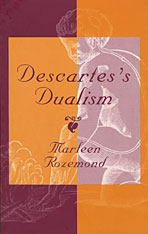
Descartes, an acknowledged founder of modern philosophy, is identified particularly with mind-body dualism--the view that the mind is an incorporeal entity. But this view was not entirely original with Descartes, and in fact to a significant extent it was widely accepted by the Aristotelian scholastics who preceded him, although they entertained a different conception of the nature of mind, body, and the relationship between them. In her first book, Marleen Rozemond explicates Descartes's aim to provide a metaphysics that would accommodate mechanistic science and supplant scholasticism.
Her approach includes discussion of central differences from and similarities to the scholastics and how these discriminations affected Descartes's defense of the incorporeity of the mind and the mechanistic conception of body. Confronting the question of how, in his view, mind and body are united, she examines his defense of this union on the basis of sensation. In the course of her argument, she focuses on a few of the scholastics to whom Descartes referred in his own writings: Thomas Aquinas, Francisco Suárez, Eustachius of St. Paul, and the Jesuits of Coimbra. This new systematic account of Descartes's dualism amply demonstrates why he still deserves serious study and respect for his extraordinary philosophical achievements.
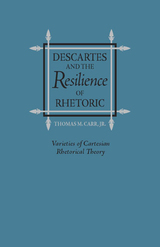
A careful analysis of the rhetorical thought of René Descartes and of a distinguished group of post-Cartesians. Covering a unique range of authors, including Bernard Lamy and Nicolas Malebranche, Carr attacks the idea, which has become commonplace in contemporary criticism, that the Cartesian system is incompatible with rhetoric.
Carr analyzes the writings of Balzac, the Port-Royalists Arnauld and Nicole, Malebranche, and Lamy, exploring the evolution of Descartes’ thought into their different theories of rhetoric. He constructs his arguments, probing each author’s writings on rhetoric, persuasion, and attention, to demonstrate the basis for rhetorical thought present in Descartes’ theory of persuasion when it is combined with his psychophysiology of attention.

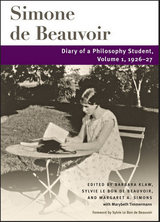
Presented for the first time in translation, this fully annotated first volume of the Diary includes essays from Barbara Klaw and Margaret A. Simons that address its philosophical, historical, and literary significance. It remains an invaluable resource for tracing the development of Beauvoir’s independent thinking and her influence on philosophy, feminism, and the world.
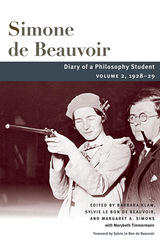
Presented for the first time in translation, this fully annotated first volume of the Diary includes essays from Barbara Klaw and Margaret A. Simons that address its philosophical, historical, and literary significance. It remains an invaluable resource for tracing the development of Beauvoir’s independent thinking and her influence on philosophy, feminism, and the world.
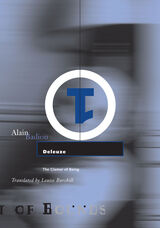
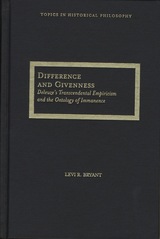
From one end of his philosophical work to the other, Gilles Deleuze consistently described his position as a transcendental empiricism. But just what is transcendental about Deleuze’s transcendental empiricism? And how does his position fit with the traditional empiricism articulated by Hume? In Difference and Givenness, Levi Bryant addresses these long-neglected questions so critical to an understanding of Deleuze’s thinking. Through a close examination of Deleuze’s independent work--focusing especially on Difference and Repetition--as well as his engagement with thinkers such as Kant, Maïmon, Bergson, and Simondon, Bryant sets out to unearth Deleuze’s transcendental empiricism and to show how it differs from transcendental idealism, absolute idealism, and traditional empiricism.
What emerges from these efforts is a metaphysics that strives to articulate the conditions for real existence, capable of accounting for the individual itself without falling into conceptual or essentialist abstraction. In Bryant’s analysis, Deleuze’s metaphysics articulates an account of being as process or creative individuation based on difference, as well as a challenging critique--and explanation--of essentialist substance ontologies. A clear and powerful discussion of how Deleuze’s project relates to two of the most influential strains in the history of philosophy, this book will prove essential to anyone seeking to understand Deleuze’s thought and its specific contribution to metaphysics and epistemology.
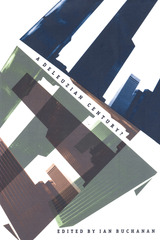
To show us how Deleuze’s philosophy works, Buchanan begins with Melville’s notion that “a great book is always the inverse of another book that could only be written in the soul, with silence and blood.” Buchanan demonstrates that the figure of two books—one written in ink and the other written in blood—lies at the center of Deleuze’s hermeneutics and that a special relation must be established in order to read the second book from the first. This relation is Deleuzism. By explicating elemental concepts in Deleuze—desire, flow, the nomad—Buchanan finds that, despite Deleuze’s self-declared moratorium on dialectics, he was in several important respects a dialectician. In essays that address the “prehistory” of Deleuze’s philosophy, his methodology, and the utopic dimensions of his thought, Buchanan extracts an apparatus of social critique that arises from the philosopher’s utopian impulse.
Deleuzism is a work that will engage all those with an interest in the twentieth-century’s most original philosopher.

Originally published as a special issue of South Atlantic Quarterly (Summer 1997), this volume includes essays from some of the most prominent American, Australian, British, and French scholars and translators of Deleuze’s writing. These essays, ranging from film, television, art, and literature to philosophy, psychoanalysis, geology, and cultural studies, reflect the broad interests of Deleuze himself. Providing both an introduction and critique of Deleuze, this volume will engage those readers interested in literary and cultural theory, philosophy, and the future of those areas of study in which Deleuze worked.
Contributors. Ronald Bogue, Ian Buchanan, André Pierre Colombat, Tom Conley, Manuel DeLanda, Tessa Dwyer, Jerry Aline Flieger, Eugene Holland, Fredric Jameson, Jean-Clet Martin, John Mullarkey, D. N. Rodowick, Horst Ruthrof, Charles J. Stivale
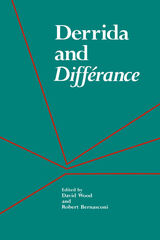
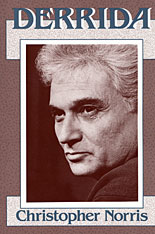
READERS
Browse our collection.
PUBLISHERS
See BiblioVault's publisher services.
STUDENT SERVICES
Files for college accessibility offices.
UChicago Accessibility Resources
home | accessibility | search | about | contact us
BiblioVault ® 2001 - 2024
The University of Chicago Press



